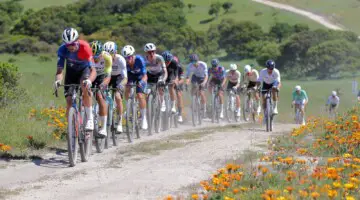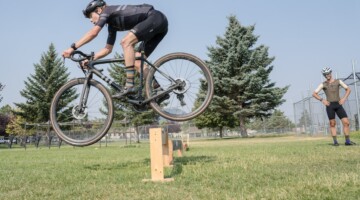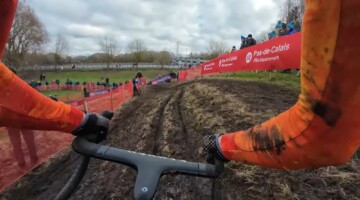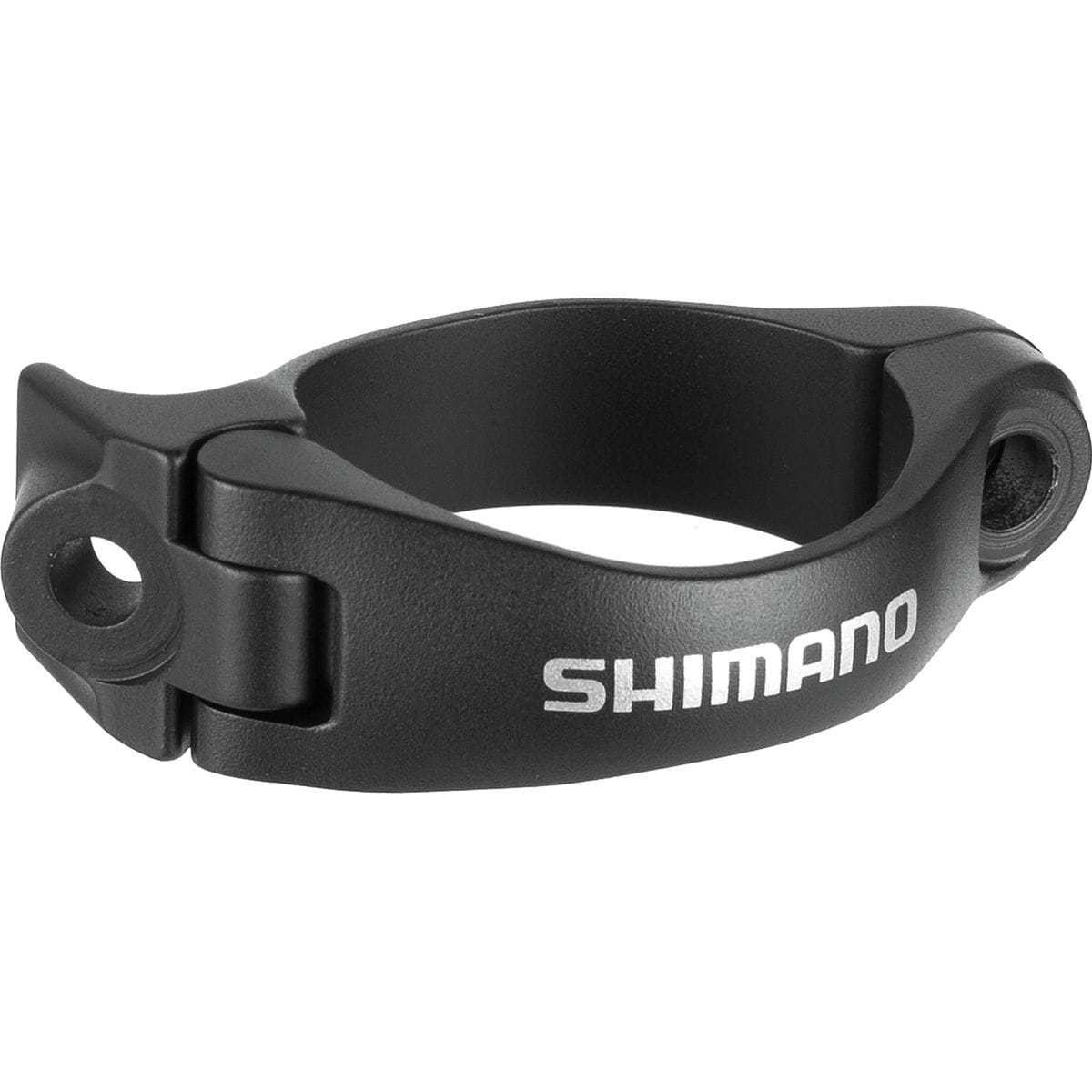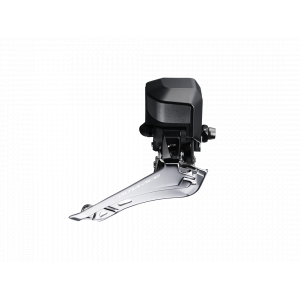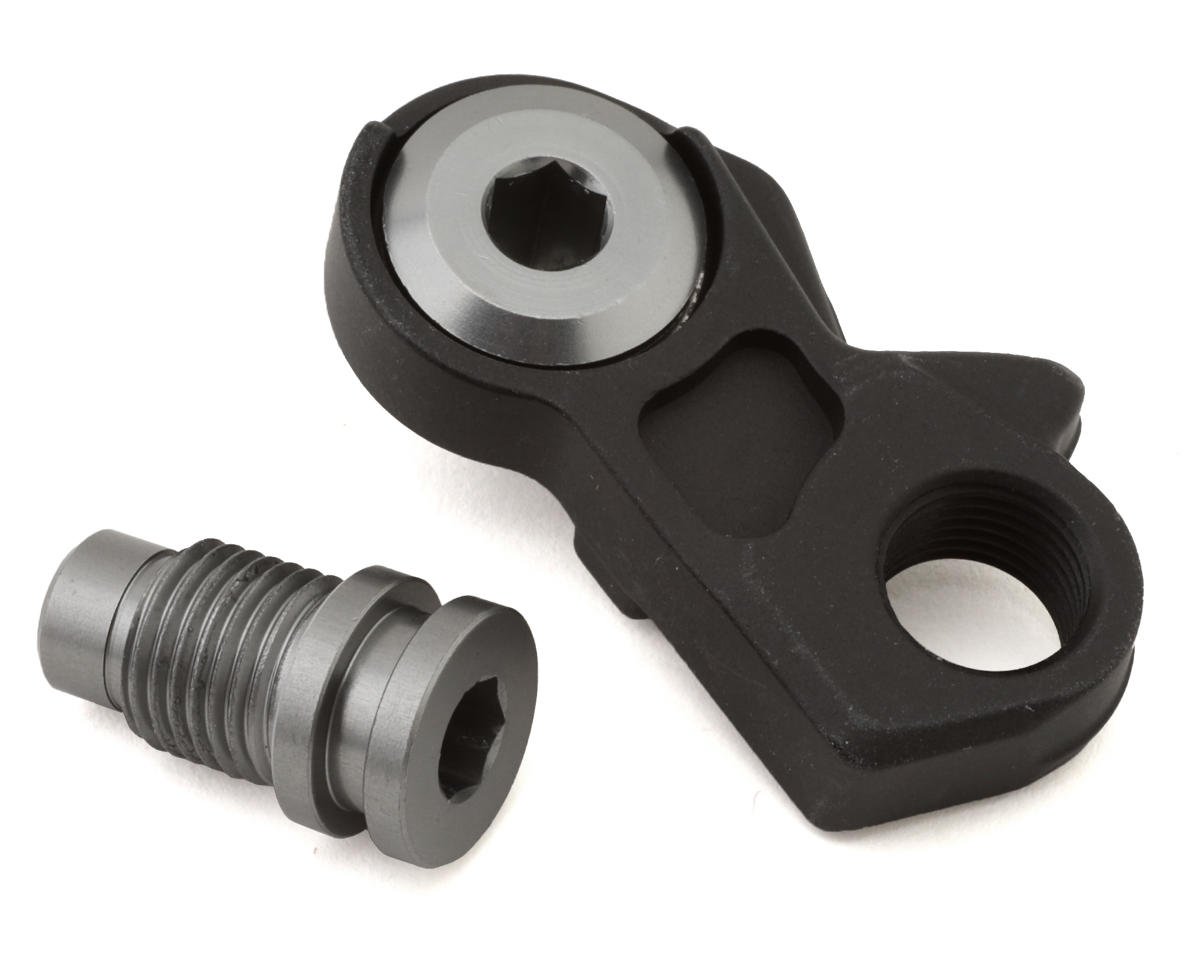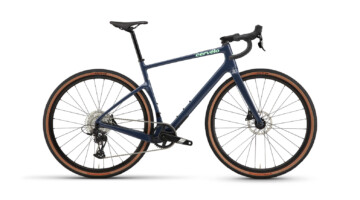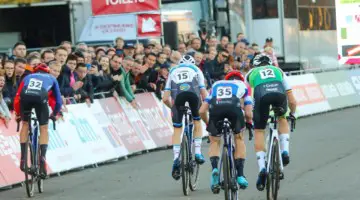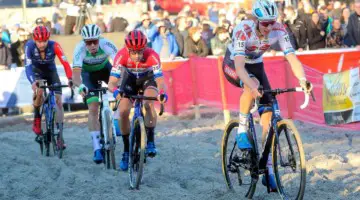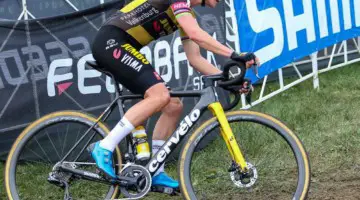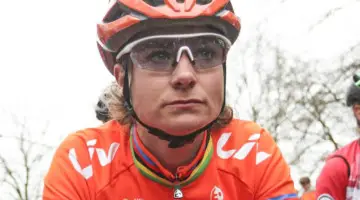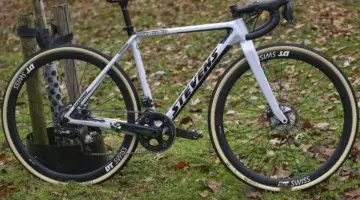When Team Sunweb announced it was switching from Giant/Liv to Cervélo as its bike sponsor, cyclocross fans wondered exactly which bike riders such Lucinda Brand and Joris Nieuwenhuis would be riding this fall. Brand helped answer that question by signing with Trek, but that still left Nieuwenhuis’ bike as a question mark.
Nieuwenhuis had a good run aboard the Giant TCX after capping his U23 career with a world championship in Luxembourg in 2017. Bike changes, however, are a way of life for professional cyclists, as shown by Sunweb’s switch to Cervelo.
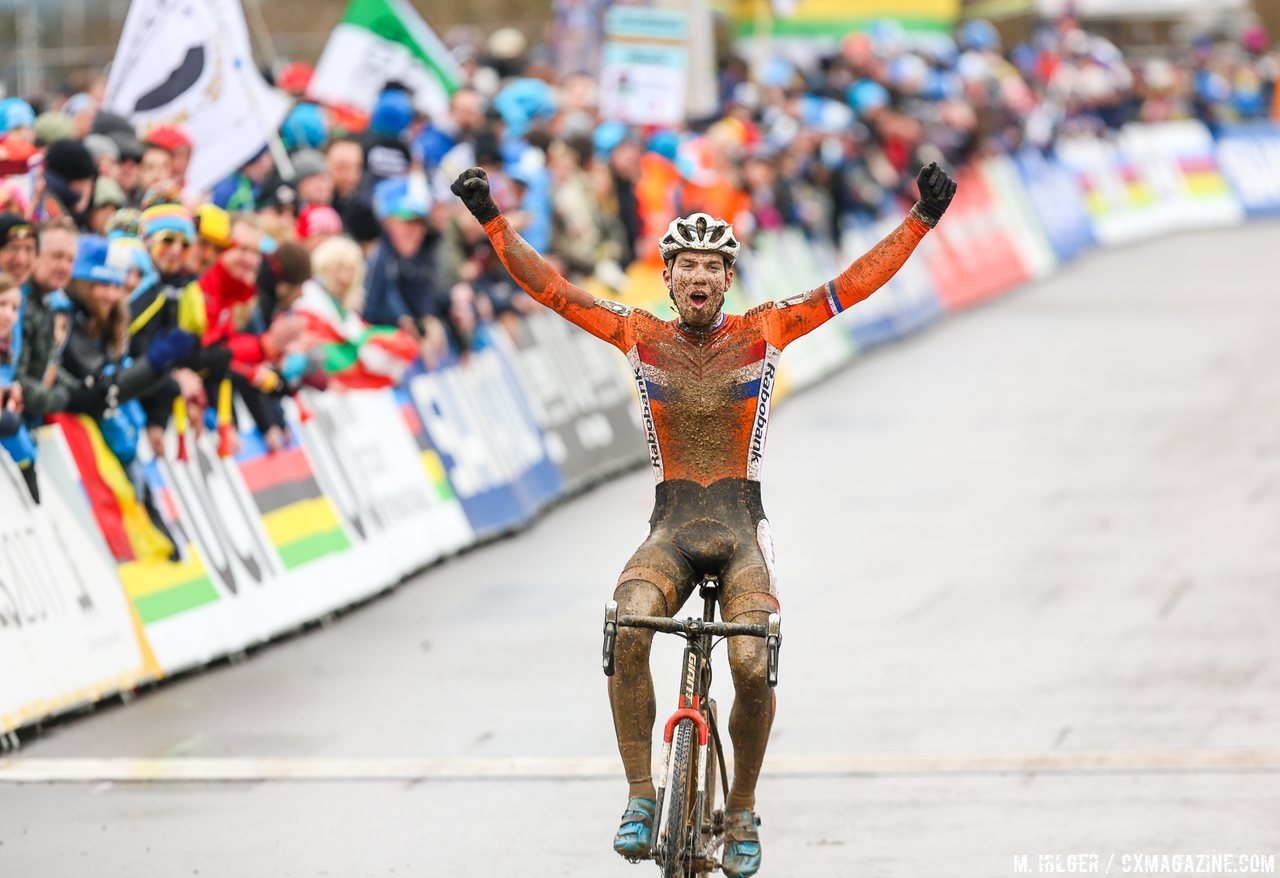
Joris Nieuwenhuis won the 2017 U23 World Championship aboard a Giant TCX. 2017 UCI Cyclocross World Championships, Bieles, Luxembourg. © M. Hilger / Cyclocross Magazine
At the beginning of this year, astute observers noticed a new Cervélo cyclocross bike called the Áspero on the UCI list of approved bikes. Cervélo released the Áspero this summer, labeling it as a “gravel bike.”
Seeing “gravel bikes” raced for cyclocross is nothing new here in the U.S. Katerina Nash and her teammates have been on the Orbea Terra for years, Tobin Ortenblad has raced the Santa Cruz Stigmata and Courtenay McFadden and her teammates are on the revamped Pivot Vault this year.
European riders racing on bikes designed for gravel is a much different story. The biggest European riders and top teams have stuck to dedicated cyclocross platforms such as the Stevens Super Prestige, Trek Boone, Ridley X-Night and recently, Canyon Inflite.
Nieuwenhuis raced the U.S. World Cups on the new Cervélo Áspero and has taken it back to the famed courses of Europe where he has raced a full season for Team Sunweb thus far.
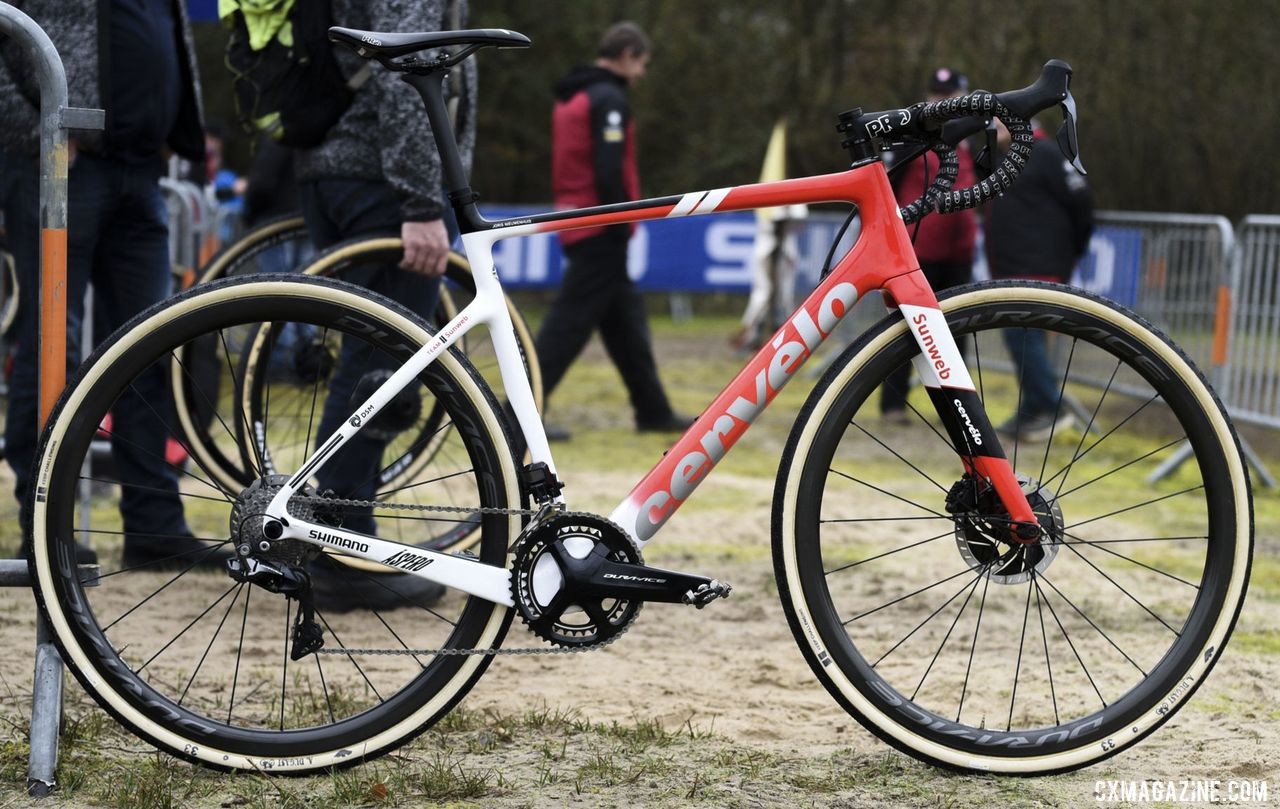
Joris Nieuwenhuis’ Cervélo Áspero Cyclocross Bike. © L. Haumesser / Cyclocross Magazine
We got the chance to take a closer look at Nieuwenhuis’ Áspero at the recent World Cup Koksijde
Joris Nieuwenhuis’ Cervelo Áspero
Cervélo is probably best known for its performance road and triathlon bikes—although it did once sponsor Jonathan Page in Europe—and the Áspero follows suit as a race-oriented gravel bike. A 56cm carbon frame weighs a claimed 1,100g and save top tube mounts, the frame is relatively stripped-down, feature-wise.
Cervélo’s marketing materials exclaim, “Haul Ass, Not Gear,” not so subtly hinting the Áspero is not designed for bike packing or long-haul races such as the DKXL.
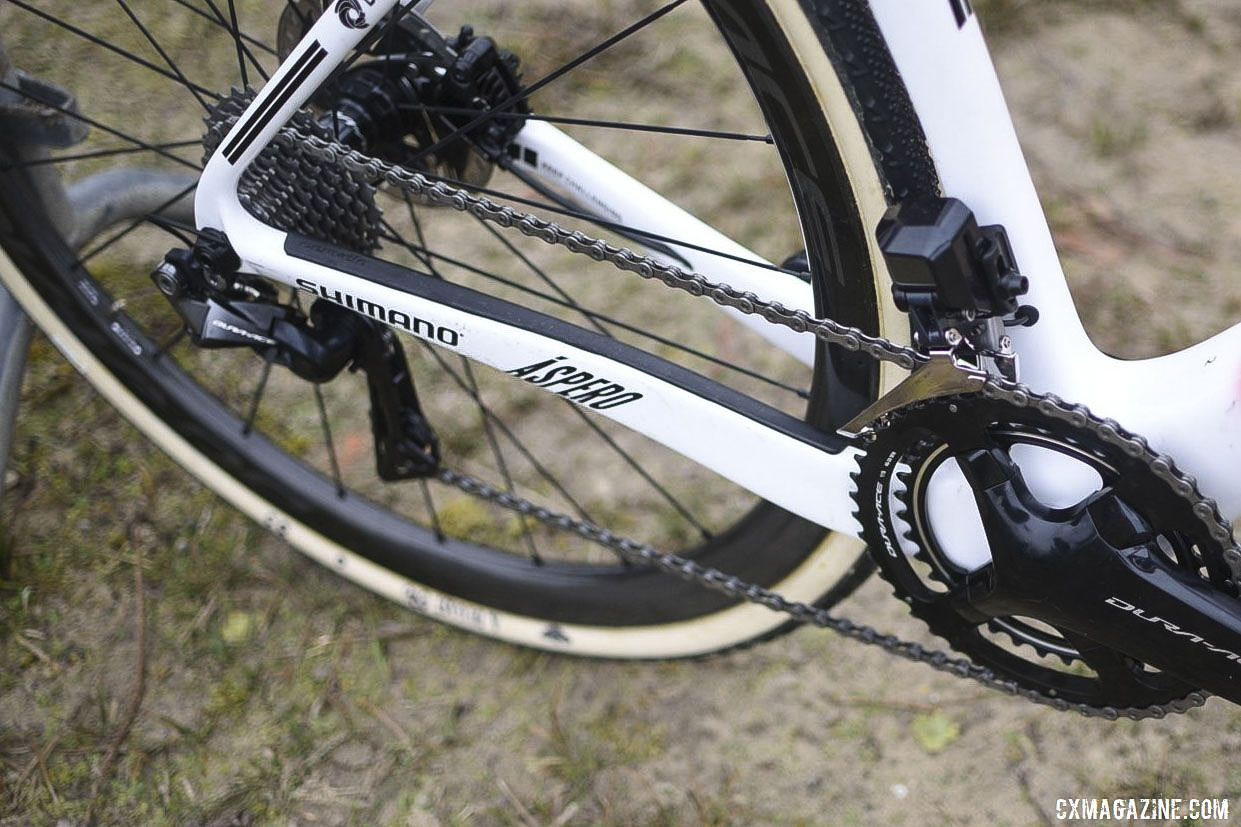
The Áspero is Cervélo’s new gravel bike that can also do cyclocross. Joris Nieuwenhuis’ Cervélo Áspero Cyclocross Bike. © L. Haumesser / Cyclocross Magazine
The frame features dropped seatstays and both chainstays are dropped as well. The dropped stays are a short 42cm.
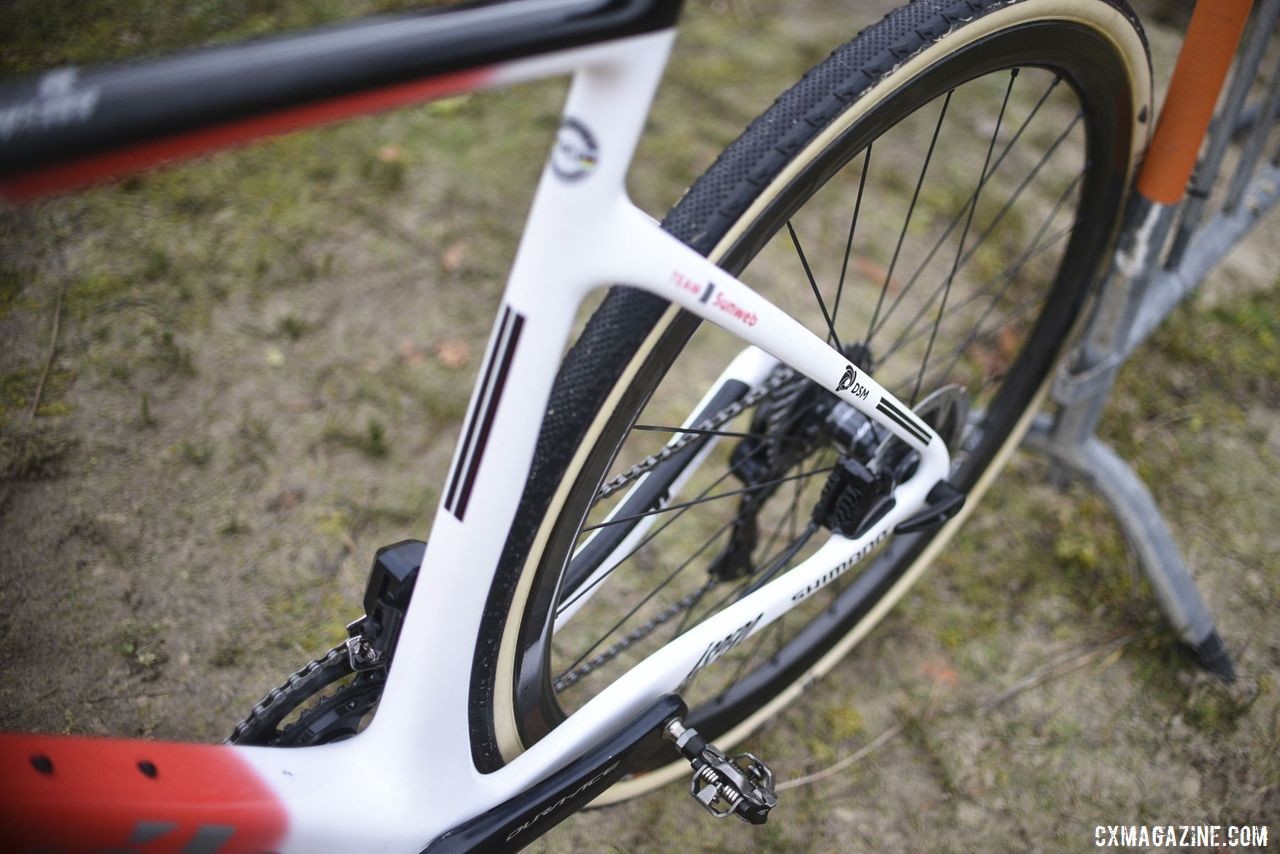
The Áspero has a dropped rear triangle similar to its areo and endurance road bikes. Joris Nieuwenhuis’ Cervélo Áspero Cyclocross Bike. © L. Haumesser / Cyclocross Magazine
One notable aspect of the Áspero’s design is the Trail Mixer flip-chip for the front thru-axle. Cervélo wanted to design the bike around both 700c and 650b wheels, so it designed the Trail Mixer to allow for riders to adjust the trail based on their wheel size and handling needs.
For cyclocross racing, Nieuwenhuis set the Trail Mixer forward, which gives a fork rake of 51mm.
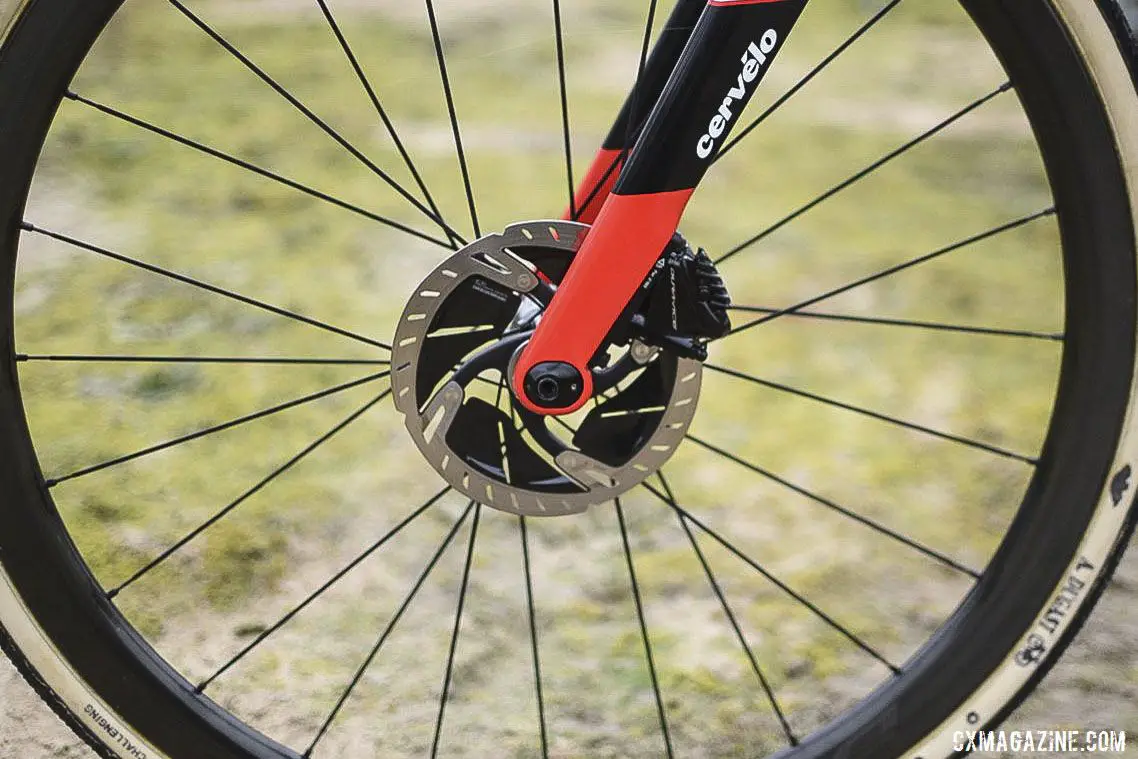
Cervélo’s Trail Mixer allows the rider to swap between 46 and 51mm of fork rake. Nieuwenhuis set his forward for less trail. Joris Nieuwenhuis’ Cervélo Áspero Cyclocross Bike. © L. Haumesser / Cyclocross Magazine
Other measurements on the Áspero give it a design in line with other “gravel bikes” such as the Pivot Vault and Santa Cruz riders are using for cyclocross. A 56 cm Áspero has a head tube angle of 72 degrees, a wheelbase of 102.7 cm and stack and reach measurements of 58 and 39.7 cm, respectively. The bottom bracket does sit lower than a comparable Pivot Vault, dropping 7.4cm compared to 7.0cm for the Vault.
According to Bike Rumor, Nieuwenhuis’ mechanics addressed the low bottom bracket issue by moving the crank axle up with an eccentric bottom bracket. The Áspero’s BBright has a 46mm shell that fits a 30mm axle with standard bearings, but team mechanics installed an eccentric BB that fits the Dura-Ace crank’s 24mm axle. [teamsunweb.com, second image]
Although Nieuwenhuis’ bikes are new for 2019, the bike we saw at Koksijde was likely newer still for unfortunate reasons. The day before the European Championships, someone stole two of his three bikes from a team van. According to Team Sunweb, team mechanics built up two new bikes painted with the team’s colorway and flew them to Italy to make sure Nieuwenhuis was ready to race in Silvelle.
Nieuwenhuis’ build was similar to other Shimano sponsored Euros, with no GRX or RX805 to be found. He ran a Dura-Ace R9100 crankset with 46/39t pro-only chain rings and a Dura-Ace R9150 Di2 front derailleur for the sands of Koksijde.
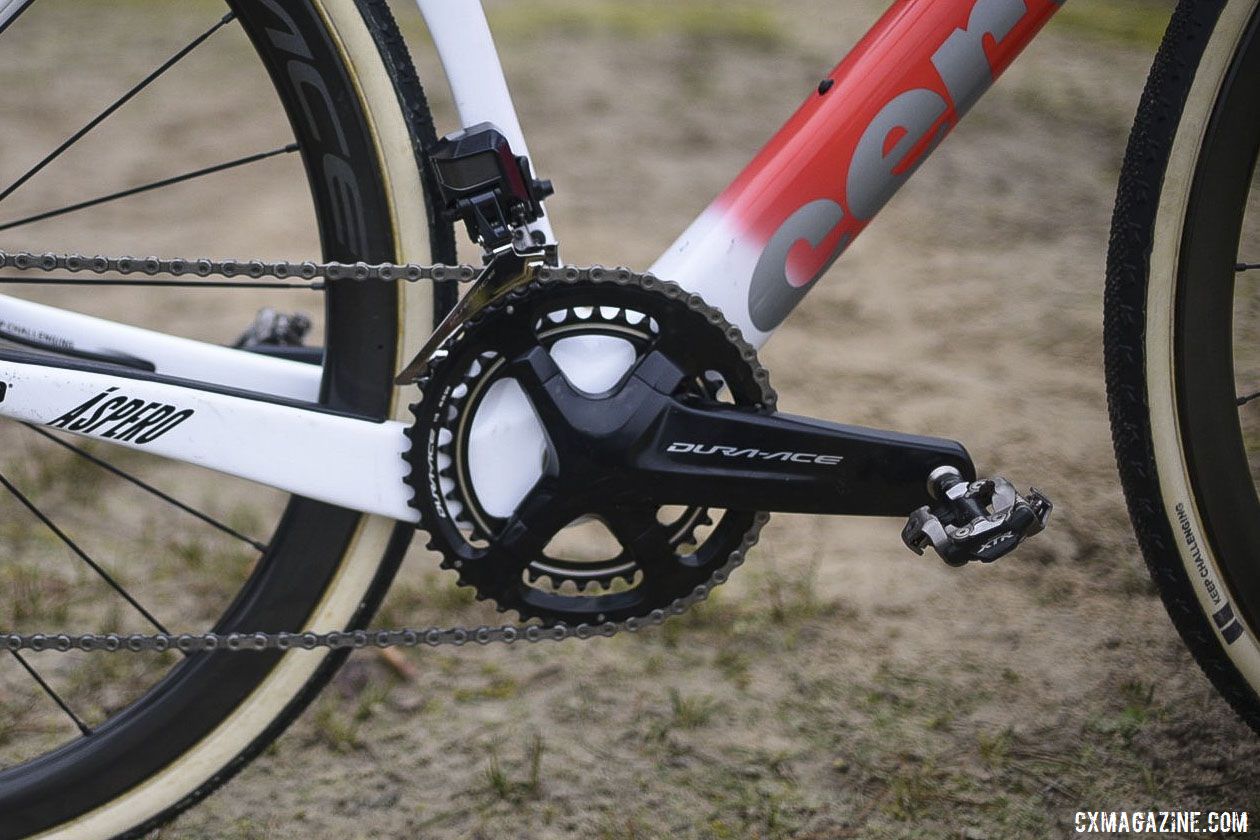
Nieuwenhuis ran a Dura-Ace drivetrain with pro-only 46/39t chain rings on an M9100 crankset. His derailleur was an M9150 Di2 model. Joris Nieuwenhuis’ Cervélo Áspero Cyclocross Bike. © L. Haumesser / Cyclocross Magazine
In the back, he ran a Dura-Ace R9150 Di2 rear derailleur and a Shimano cassette.
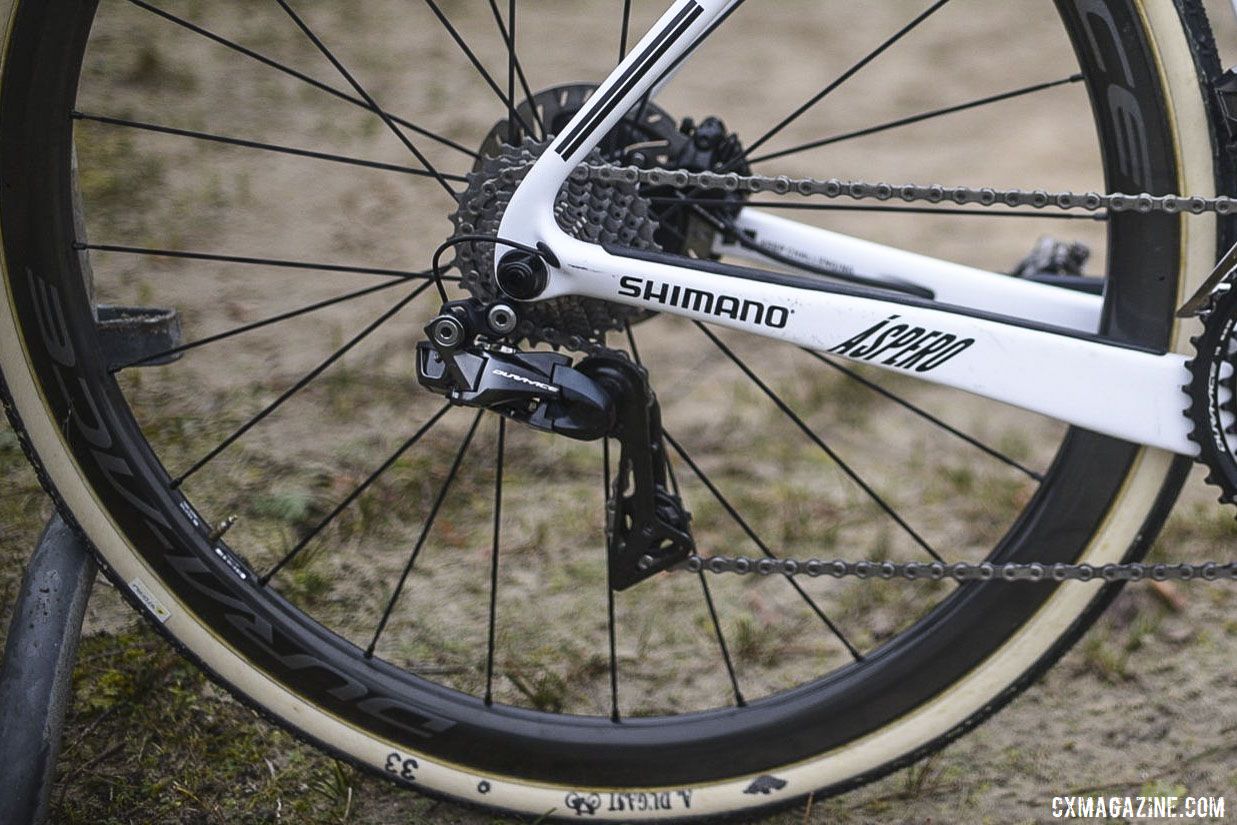
No clutch here. Nieuwenhuis ran a Dura-Ace R9150 rear derailleur. Joris Nieuwenhuis’ Cervélo Áspero Cyclocross Bike. © L. Haumesser / Cyclocross Magazine
Although he is on a “gravel bike” and we have seen tubeless tires on the domestic scene, Nieuwenhuis kept it Euro and traditional with Shimano Dura-Ace C40 carbon tubulars. He opted for Dugast Pipisquallo file treads that features more aggressive side knobs than its predecessor the Pipstrello.
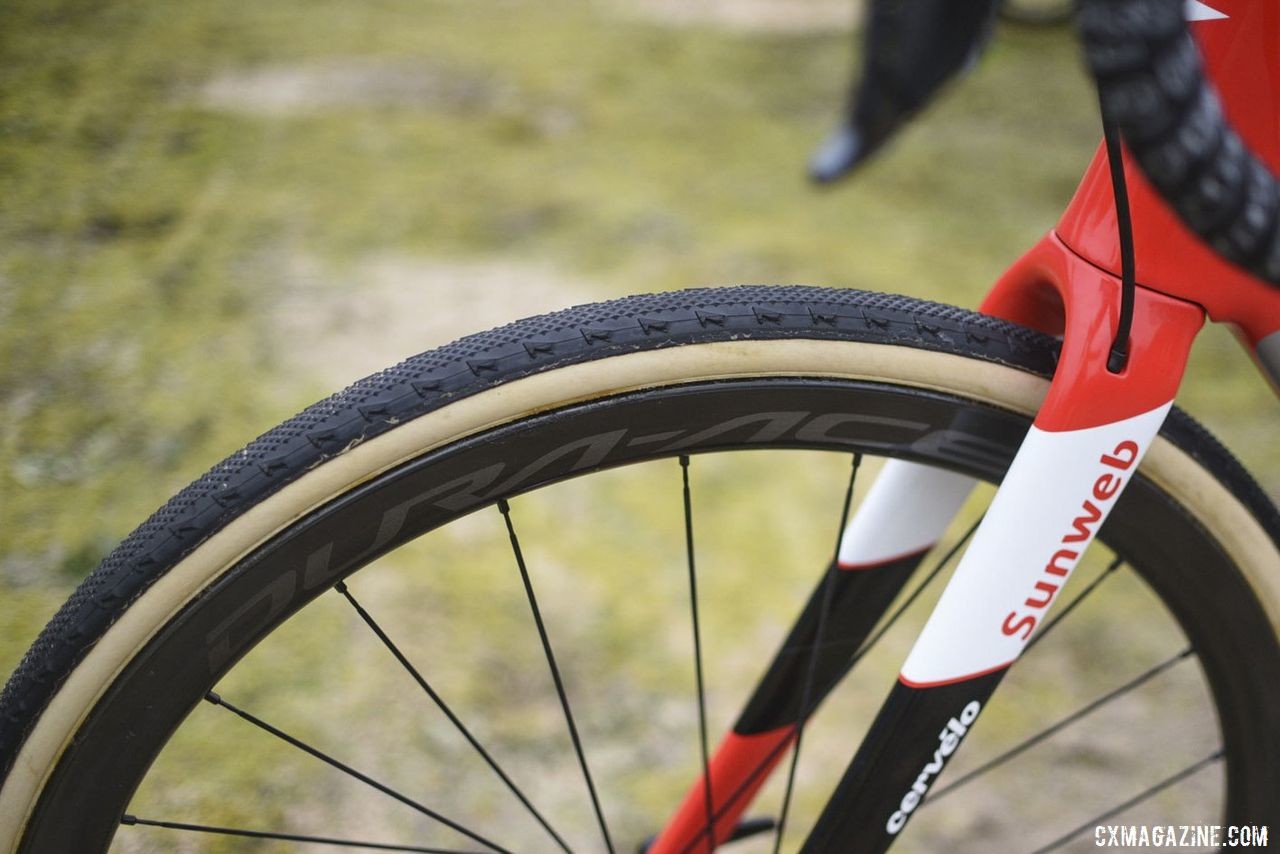
Nieuwenhuis runs the Shimano Dura-Ace C40 carbon tubulars, and he opted for Dugast Pipisquallo file treads for the sands of Koksijde. Joris Nieuwenhuis’ Cervélo Áspero Cyclocross Bike. © L. Haumesser / Cyclocross Magazine
The tires also feature the team’s “Keep Challenging” motto.
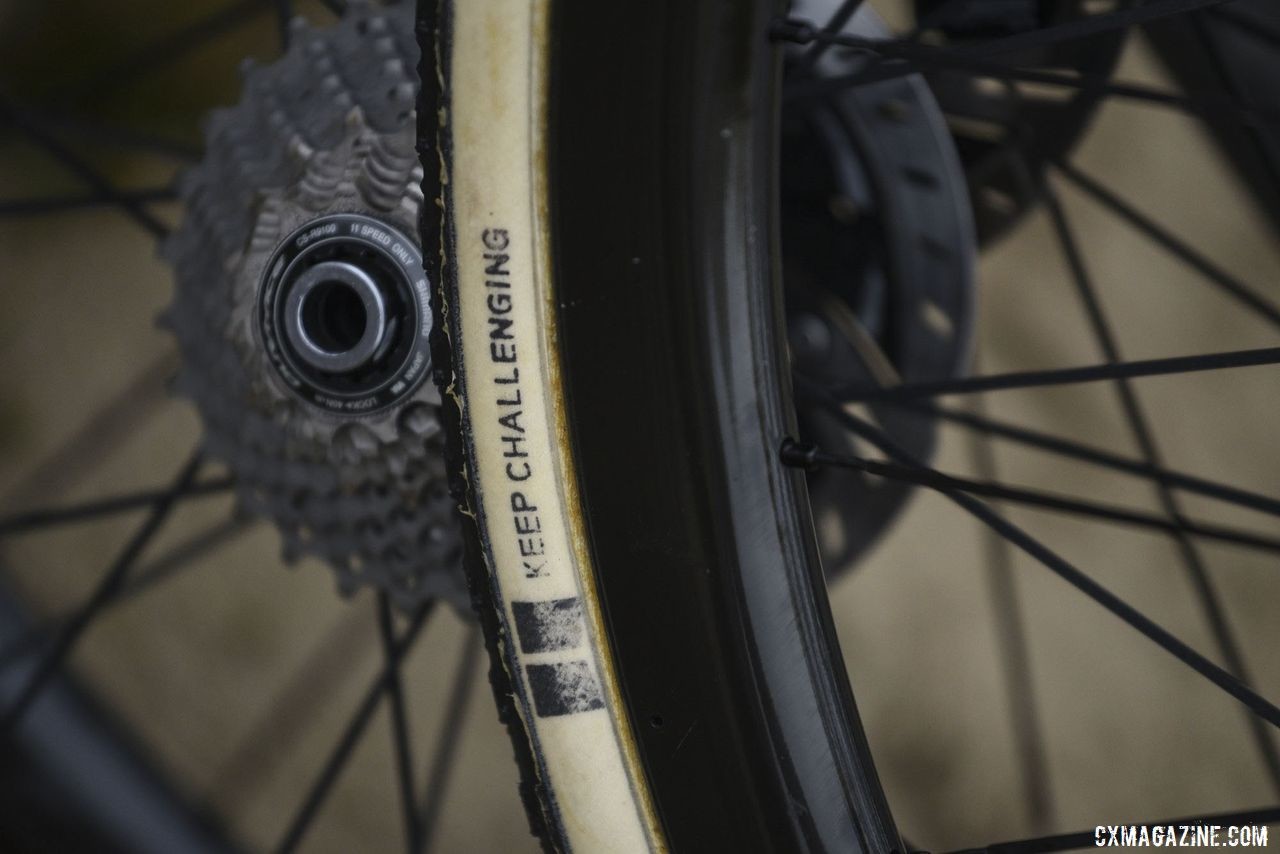
Team Sunweb’s logo and “Keep Challenging” motto grace Nieuwenhuis’ Dugast tubulars. Joris Nieuwenhuis’ Cervélo Áspero Cyclocross Bike. © L. Haumesser / Cyclocross Magazine
For his cockpit, Nieuwenhuis ran an alloy Pro PLT handlebar held by a Pro Vibe stem. A carbon seatpost held his Pro Turnix saddle. Similar to most Shimano-sponsored athletes this season, Nieuwenhuis ran XTR M9100 SPD pedals.
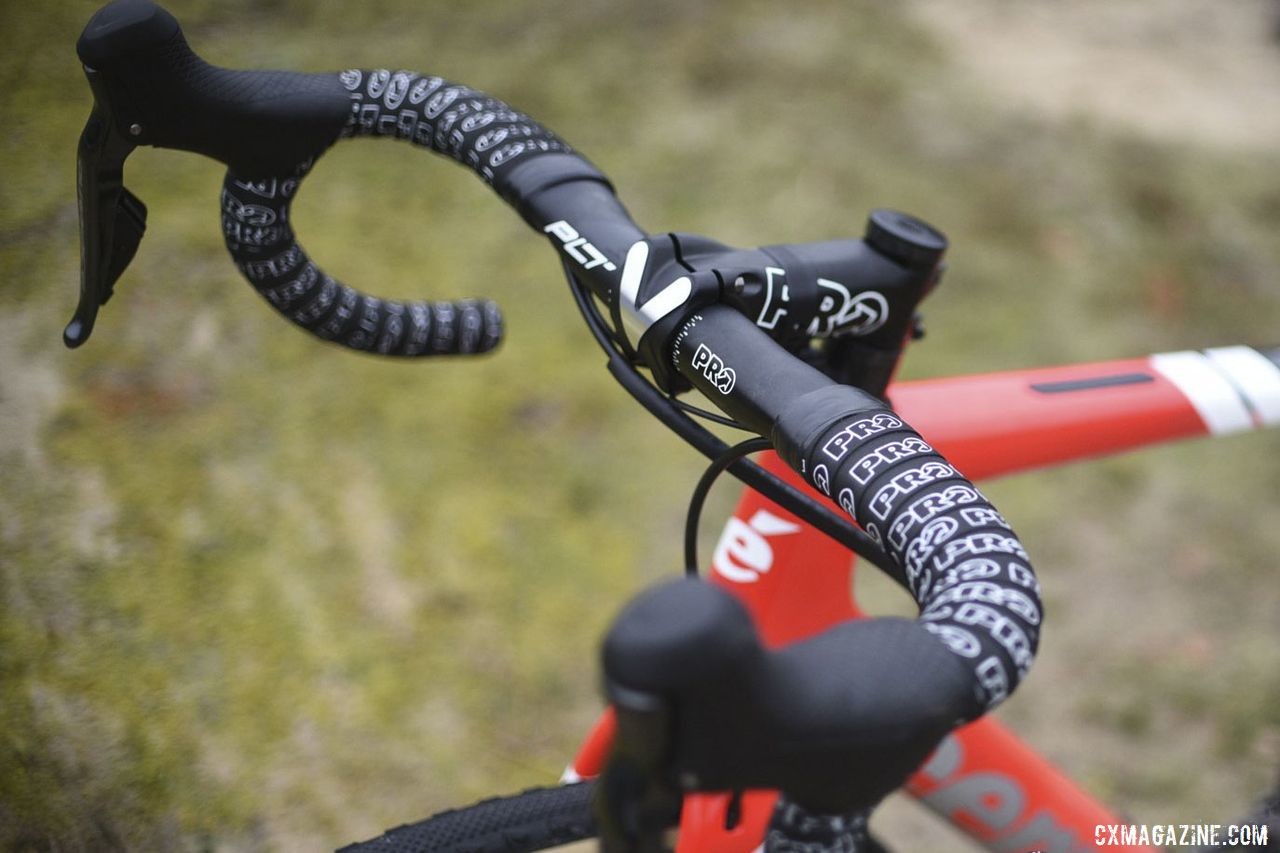
Nieuwenhuis ran a Pro PLT alloy handlebar at Koksijde. Joris Nieuwenhuis’ Cervélo Áspero Cyclocross Bike. © L. Haumesser / Cyclocross Magazine
Nieuwenhuis has been racing the World Cup and Superprestige series this season and will continue to ride her Cervélo Áspero into the winter. It remains to be seen if he will be joining the Lars Booms of the world and taking it to some gravel roads this coming spring.
For a closer look at Nieuwenhuis’ bike, see the photo gallery and specs below. Stay tuned for our review of the new bike.
Photo Gallery: Joris Nieuwenhius’ Cervélo Áspero

